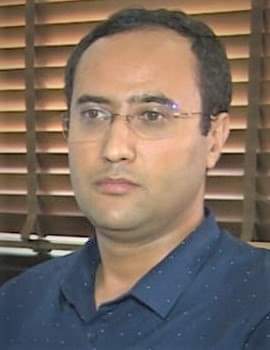للمفكر وعالم اللسانيات الأميركي نعوم تشومسكي كلمة مأثورة مفادها أن الإعلام في الأنظمة الديمقراطية يلعب دور الهراوة في الأنظمة الفاشية، مشيرا إلى أدوات الدعاية وتوجيه الرأي العام التي تقوم بها وسائل الإعلام، ليحصل القرار المراد تنفيذه على التأييد. ويقدّم تشومسكي مثالا واضحا على ذلك، وهو "الانقلاب" الذي شهده الرأي العام الأميركي عام 2003 تجاه فكرة غزو العراق، حيث تحوّل خلال أشهر قليلة من الرفض المطلق إلى التأييد التام.
هذا في العوالم الديمقراطية، أما في المجتمعات المحكومة بأنظمة غير ديمقراطية، أو هجينة، كما هو الحال في جلّ الدول العربية، فإن شبح المدّ السلطوي الآخذ في مراودة المنطقة عن حرياتها، يبدي عزما على حيازة "الهراوتين"، تلك التي تسمح بها الأنظمة غير الديمقراطية وتحوز الدولة شرعية استخدامها كمحتكرة للعنف المشروع، ونظيرتها التي توظفها الأنظمة الديمقراطية للتأثير في الرأي العام.
آخر المنافذ
في الوقت الذي اعتقد فيه الكثيرون أن عصر "الصحفي المواطن" قد جرّد الأنظمة السياسية من إمكانية السيطرة الإعلامية عبر امتلاك وسائل الإعلام وتقييدها، باتت وسائل التواصل الاجتماعي أو "السوشيال ميديا" -الإعلام البديل للشعوب العربية تحت القصف- محاصَرةً بين سندان الإغراق في أسراب الذباب الإلكتروني تارة، وسلاح التقييد القانوني تارة أخرى، وبالتالي أصبحت الشبكات الاجتماعية واحدة من آخر منافذ حرية التعبير في المنطقة العربية، المهددة بالتقييد والتوجيه.
فبعد الإرهاق والإضعاف الكبيرين اللذين تسببت فيهما حروب الثورات المضادة للربيع العربي للمنصات الإعلامية التقليدية، باتت الشبكات الاجتماعية هدفا جديدا للأنظمة السياسية، من خلال استهدافها بأدوات الاحتواء والإخضاع والتوجيه في بعض الدول، أو عبر طرح قوانين جديدة لتقييدها بواسطة عقوبات قاسية كما هو الحال في دول أخرى.
وبعدما تصاعد إيقاع حجب المواقع الإلكترونية وتوظيف فرق الذباب الإلكتروني وأدوات الذكاء الاصطناعي لتوجيه نقاشات الشبكات الاجتماعية، جرى استنفاد البنود القانونية المضمنة في مدونات العقوبات والقوانين الجنائية التي تسمح بملاحقة وسجن النشطاء والمعارضين؛ لتبرز في الآونة الأخيرة طلائع قوانين جديدة موجهة بشكل صريح ومباشر نحو رواد الشبكات الاجتماعية.
فالمغاربة عاشوا قسما كبيرا من مرحلة الطوارئ الصحية التي أعلنت في البلاد إثر ظهور جائحة "كورونا" في مارس/آذار 2020، على وقع الصدمة التي خلفها مشروع قانون جديد بات يعرف باسم "قانون التكميم"، لما يتضمنه من عقوبات قاسية ضد مستخدمي هذه الشبكات، خاصة الذين يستعملونها في إطلاق حملات المقاطعة الاقتصادية، على غرار تلك التي عرفها المغرب عام 2018 واستهدفت منتجات شركات تملكها شخصيات سياسية أو فروع لشركات فرنسية.
بدورها، تعيش مصر منذ بداية العام 2017 على الأقل، على وقع حملة واسعة للرقابة على المواقع الإلكترونية والشبكات الاجتماعية، مستخدمة بنود قانون الاتصالات وقانون العقوبات المصري وقانون مكافحة جرائم الإرهاب، ثم عبر قانون مكافحة جرائم تقنية المعلومات الذي دخل حيّز التطبيق صيف العام 2018. ويكاد يكون الأمر عاما لمجموع المنطقة العربية، مع اختلافات في الأسلوب والوسائل، حيث أصبحت منصات التواصل الاجتماعي في السنوات الأخيرة مصدرَ قلق كبير للسلطات السياسية والأمنية في الأردن، وهو ما تجسد في استحداث مديرية خاصة بالجرائم الإلكترونية، وتكثيف عمليات الزجر والملاحقة.

"إعلام الشعوب"
من بين ما حققته الشبكات الاجتماعية في فترة الانفلات من قبضة رقابة السلطات، كونها كسرت الكثير من المحاذير والخطوط الحمراء، سواء تلك التي كانت السلطة تضعها أمام وسائل الإعلام الحكومية، أو التي تعود إلى اعتبارات اجتماعية وثقافية. وشكّل هذا التطوّر متنفسا جديدا للصحافة المحترفة التي وجدت في نموذج "الصحفي المواطن" حليفا يرفع بفعالية سقفَ الحريات، ويوسّع دائرة الممكن قوله والخوض فيه، من موضوعات سياسية واجتماعية واقتصادية شائكة.
ومنذ لحظة اندلاع ثورات الربيع العربي، أصبحت الشبكات الاجتماعية تلعب دورا كبيرا في تغيير أنماط التواصل الجماعي والفردي داخل المجتمعات العربية. وشكّل هذا التحوّل بديلا فعالا في يد هذه المجتمعات، لتجاوز ضعف الصحافة المحلية وخضوعها للقيود السياسية والقانونية والاقتصادية. ورغم بعض الفوضى التي اعترت هذا المجال في البداية، فإن البعض اعتبرها من قبيل "الفوضى الخلاقة" التي سترسو بسفينة الصحافة على برّ الازدهار، بما أن الحرية هي أكثر ما تحتاجه هذه المهنة.
وتقول الإحصاءات إن حوالي 60% من ساكنة المنطقة العربية تنتمي إلى الفئة العمرية أقل من 25 عاما، وهي الشريحة العمرية الأكثر ارتباطا بالإنترنت. وأبان الشباب العربي عن تعطش كبير لاستخدام الشبكة العنكبوتية، إلى درجة اخترع معها لغته الخاصة لكتابة اللغة العربية بالأحرف اللاتينية والأرقام، قبل وصول لغة الضاد إلى لوحات مفاتيح الحواسيب.
وأبانت دراسات موثوقة أن العرب يعتمدون على الشبكات الاجتماعية أكثر من بعض المجتمعات الرائدة في مجال التكنولوجيا الرقمية -كالمجتمع الأميركي- في مجال استقاء الأخبار، خاصة منهم الشباب الذين يُبدون ثقة كبيرة بهذه المصادر. وفي بحث شمل عددا من الدول العربية، أنجزته جامعة "نورث ويسترن" بالدوحة، تبيّن أن أكثر من ثلاثة أرباع المستجوبين الذين تم أخد آرائهم مستهل العام 2017، يعتبرون الهاتف الذكي مصدرهم الأول في الحصول على الأخبار.
ويعتبر الفيسبوك المنصة الأكثر انتشارا وشعبية في العالم العربي، وكشفت دراسة للجامعة نفسها، أن نسبة المواطنين العرب غير المنخرطين في أي من الشبكات الاجتماعية، يكاد يكون منعدما، خاصة في دول الخليج العربي.

وظائف معاكسة
يعتقد 65% من العرب أن حكوماتهم تستعمل الشبكات الاجتماعية لجمع المعطيات الشخصية عنهم، وهو ما يجعلهم حذرين في نشر المحتويات عبر هذه المنصات، ويمارسون بالتالي رقابة ذاتية. وإلى جانب ذلك، تعمد بعض الأنظمة السياسية إلى استخدام نظام "اللائحة السوداء" التي تضم حسابات الأشخاص الذين ترغب في عدم ظهور تدويناتهم وتغريداتهم، ومنع محركات البحث من العثور عليهم. كما عمدت بعض الأنظمة إلى أسلوب الترويج المكثف للأخبار الزائفة وتقنية التصيّد (trolls)، لترهيب الأشخاص الذين ينشرون محتويات مزعجة وإرغامهم على الصمت.
وكشف تقرير "البارومتر العربي" الأخير (2019) حول السياسات والشبكات الاجتماعية في منطقة الشرق الأوسط وشمال إفريقيا، أن المواطن العربي يستخدم الشبكات الاجتماعية لمدة لا تقل عن ساعتين في اليوم الواحد، وأن ثلاثة أرباع المستخدمين العرب للشبكات الاجتماعية حاضرون في منصة فيسبوك. كما يعتبر أكثر من ثلثهم أن الشبكات الاجتماعية هي مصدرهم الأول في الاطلاع على الأخبار العاجلة. لكن، وفي الوقت الذي اعتقد الجميع أن هذه الشبكات ستتيح شفافية أكبر وتحرر صوت المواطن العربي، باتت منصاتُها مصدرا لنشر الانقسام والكراهية والقبلية والحزبية الضيقة.
لكن الإشكال يُطرح في طريقة استخدام هذه الشبكات، حيث تكشف الدراسات أن مواطني الدول العربية باتوا يخضعون أكثر فأكثر لقوانين وقيود تحدّ من حريتهم في التغريد والتدوين، مما جعل جرعة الرقابة الذاتية والامتناع عن التفاعل ترتفع تدريجيا في السنوات الأخيرة، وهو ما قلّص دائرة الحرية، سواء "للصحفي المواطن"، أو نظيره المحترف الذي كان يتعقّبه طيلة العقد الماضي، حاصدا "غنائم" المكتسبات المستجدة في حرية التعبير وتداول الأخبار والآراء.
تحت السيطرة
ردة الفعل الأولى التي قامت بها الأنظمة عقب ثورات الربيع العربي، تمثلت في إحكام القبضة على المؤسسات الإعلامية، ومحاولة التأثير من خلالها في مضامين الشبكات الاجتماعية عبر مكاتب للاستشارة وأجهزة أمنية متخصصة.
وبين لحظة ثورات الربيع العربي، حيث كان الشبان يعتمدون بشكل خاص على كل من فيسبوك وتويتر لتنظيم صفوفهم ونشر رسائلهم، وبين نهاية عقد كامل، تغيّرت أشياء كثيرة، أولها عدد مستخدمي الشبكات الاجتماعية في العالم العربي، إذ تضاعف عدة مرات في النصف الأول من العقد الحالي، قبل أن يسجّل بدءا من العام 2015 هبوطا كبيرا في نسبة استخدام الفيسبوك في المنطقة العربية، حيث انخفضت نسبة المشتركين فيه من بين السكان من 76 إلى 55% في المملكة العربية السعودية، ومن 83 إلى 70% في الإمارات العربية المتحدة، ومن 43 إلى 22% في قطر.
وعندما انطلقت "الموجة الثانية" من ثورات الربيع العربي، والتي شهدتها حديثا دول مثل الجزائر والسودان ولبنان والعراق، كانت الأنظمة السياسية قد تمكّنت من تحويل وسائل الإعلام والشبكات الاجتماعية إلى أدوات للضبط والتعقب والمراقبة، بعدما كانت مصدر تهديد إلى وقت قريب. بل إن دولا غير بعيدة عن المنطقة العربية، تعمد إلى شلّ شبكة الإنترنت نهائيا، كما كان الشأن في إيران.
ولم يقتصر التغيير على الجانب الكمّي، حيث تغيّر شكل المضامين التي تنشرها الشبكات الاجتماعية، وأصبح "حائط" الفيسبوك مليئا بالصور والفيديوهات بَدَل التدوينات النصية، وأصبحت المنطقة العربية تسجّل أعلى معدلات ارتفاع استهلاك الفيديوهات في "العالم الأزرق"، بما يعني تراجع حضور المحتويات الفكرية والآراء السياسية لصالح المقاطع الترفيهية والترويجية، وإن كانت بعض المؤسسات الإعلامية حاولت ملاءمة مضامينها مع هذا التحوّل، من خلال استعمال تقنيات الفيديو و"الغرافيك" بوتيرة متصاعدة.
صوت وصورة
في الوقت الذي تتجاوز فيه التطورات المتسارعة حقبة التغريد عبر "تويتر"، تعرف منصات تعتمد بشكل على خاص على المحتويات المرئية صعودا كبيرا، مثل "إنستغرام" و"سنابشات". وهكذا فقَدت الشبكات الاجتماعية بشكل سريع محتوياتها النصية لصالح المرئيات، دون أن تفقد الأنظمة قدراتها التي طوّرتها بعد الربيع العربي في اللحاق بالتحولات التكنولوجية، حيث صدرت قوانين وقرارات في كثير من الدول العربية لحظر بعض تطبيقات التواصل عبر الفيديو، وحظر الشبكات الافتراضية الخاصة (VPN).
ومع ازدياد ضغوط الرقابة والعقاب، اتجه الجمهور أكثر نحو التطبيقات "المغلقة"، مثل "واتساب" و"سنابشات"، حيث يمكن للمستخدم أن يتحكم أكثر في طبيعة ما ينشره ومع من ينشره. كما تزايد الإقبال على التطبيقات المشفرة حمايةً لخصوصية المراسلات وسريتها، وهو ما قلّل منسوب الشفافية ودرجة الدقة والوثوق في مضامين الشبكات الاجتماعية، لحساب تقوية وتعزيز انتشار الأخبار الزائفة والحملات الدعائية الموجهة.
وظيفة الصحفي محفوظة
صحيح أن المجتمع كله يخسر من وراء تحويل الشبكات الاجتماعية إلى فرصة لالتحام الصحافة المحترفة مع صحافة المواطن، لكن المسؤولية في مواجهة هذا النكوص ووقف تهديده للحرية والديمقراطية، تؤول إلى المؤسسات الإعلامية والصحفيين أولا.
فالصحفي المحترف هو المستفيد الأول من تحرير "الأكورا الرقمية"، وإن كان البعض يرى فيها (بسبب قصر في النظر) تهديدا للاحتكار المتوهم لدى بعض الصحفيين لوظيفة نقل الأخبار والآراء. فالمنصات الجديدة والشبكات الاجتماعية وفرت فرصا أسهل لبلوغ القراء ونشر المحتويات على نطاقات واسعة، وبالتالي إحداث التأثير والتغيير المنشودين من العمل الصحفي.
مسؤولية الصحفيين هذه تتمثل في قيامهم -أفرادا ومؤسسات- بواجب القيادة والتنوير، لنشر ثقافة الشفافية والتوعية بأهمية تحصين الفضاء الرقمي من الأخبار الزائفة، عبر الحرص على التوثق من المصادر وعدم النشر قبل التأكد من صحة المضامين، ونشر حس التصدي للحملات الموجهة للذباب الإلكتروني والحسابات الزائفة.
وظيفة التصدي لمحاولات الإفساد الممنهجة للفضاء الإلكتروني، تستدعي من الصحفيين حدا أدنى من المعرفة التقنية والإلمام بقواعد الأمن الرقمي والجيل الجديد من أخلاقيات النشر وحماية الحق في الخصوصية والحق في الصورة والتمييز بين الشأن العام والحياة الخاصة للأفراد.. وهذا الأمر يعني أولا وقبل كل شيء إعطاء القدوة وعدم الانخراط في المهام غير النظيفة، وإن كانت تبدو مغرية ذات مردودية مادية. فوظيفة "حارس البوابة" التي جرى الاعتقاد في بعض الأوقات أنها غادرت دائرة الصحافة لتستقر في مجال "المؤثرين الجدد"، ما زالت تنتظر الصحفي اليوم ليقوم بدوره ويكون مرجعا في استقاء الأخبار أوّلا، ونموذجا يحتذى في السلوك الإيجابي عبر الشبكات الاجتماعية.








































